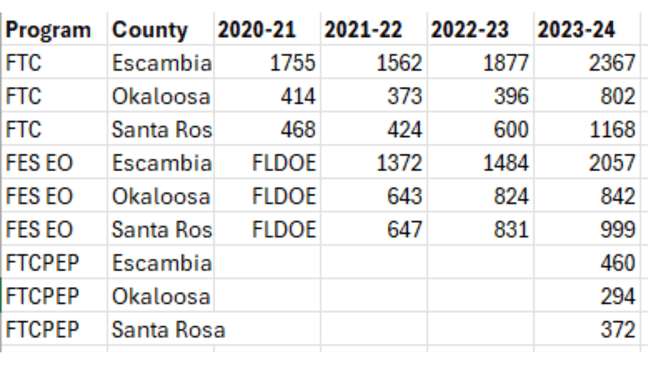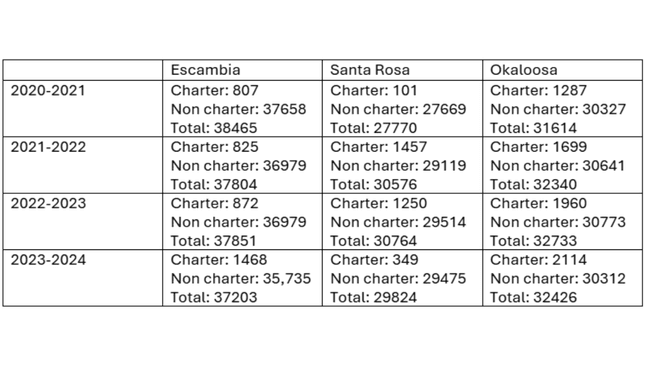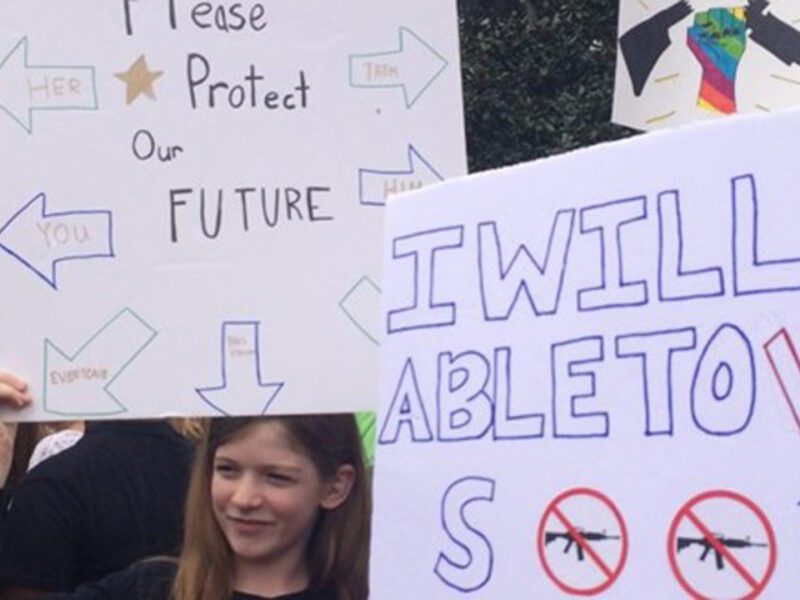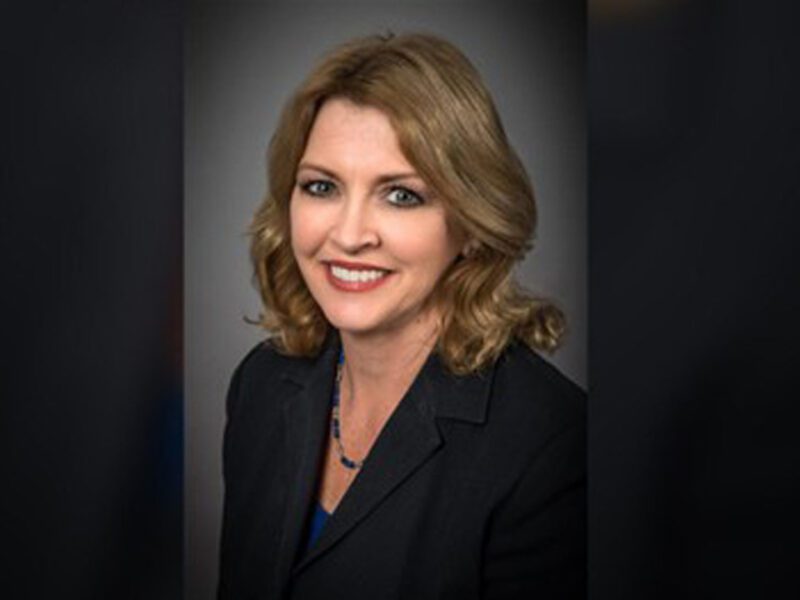Over $4B: Why Florida now spends more than every other state on school vouchers
WEAR News | By Samantha Serbin | November 7, 2024
PENSACOLA, Fla. — An expanded school choice program means scholarships for more than a quarter million Florida families.
But what does this mean for our public school systems and your tax dollars?
Pensacola mother Tammy Wahlen has seen the benefits of both private and public schools with her son Landon.
“I seen at an early age he was a very smart kid and I wanted the best education for him,” she said. “I didn’t feel like he could get it at the public schools we were going to. So, we chose to go with the private sector.”
For nine years, that meant private school.
“In 3rd grade he was reading at a 10th grade level. When he hit 5th grade, he was in college level reading,” Whalen said.
Her family used a voucher allowing them to choose what school would best fit Landon regardless of the price tag.
Last year, new legislation eliminated income restrictions for the program.
It’s a move that boosted private school enrollment.
Mike Juhas, superintendent of Catholic Schools Diocese of Pensacola-Tallahassee, says their schools are near capacity — and have been that way since the program was first introduced two decades ago.
“We’ve seen steady growth,” Juhas said. ” “To be honest, the school choice program started around 20-25 years ago. We’ve seen steady growth in probably the past 12 years to where it’s been an incremental increase. We were already at 94% capacity when universal choice happened.”
“Some grades are full with long waiting lists,” he added. “Some grades we may have a place or two.”
Data from “Step Up for Students” shows roughly 185,000 total scholarships last school year. This year, it’s more than 291,000.
For the 2024-25 school year:
- 46,595 students enrolled on the Florida Tax Credit Scholarship (FTC)
- 244,664 students enrolled on Family Empowerment Scholarship for Educational Options (FES-EO)
- 49,455 students with the Personalized Education Program scholarship (PEP)
Florida Tax Credit (FTC) and Personalized Education Program (PEP) scholarships are funded by corporate donations to nonprofit scholarship funding organizations. The donating businesses receive state tax credits. Family Empowerment Scholarship for Educational Options (FES-EO) and Family Empowerment Scholarship for Unique Abilities (FES-UA) are funded by the state.
In Northwest Florida, we don’t have this year’s exact numbers yet.
“Our preliminary numbers show that for the 2024-25 school year, 515 students total who were enrolled in Escambia, Okaloosa and Santa Rosa schools in 23-24 are new to the FTC/FES-EO/PEP scholarship programs this year,” a representative from Step Up for Students said.
We know after the program expanded in spring 2023, northwest Florida saw more than 2,200 new scholarships.

“In the state of Florida, 70% of voucher students had never stepped foot in a traditional public school,” said Damaris Allen with Families for Strong Public Schools. “So those aren’t really students who are opting out of leaving our public schools. They are students who had never been there to begin with.”
“We can tell you over the last 3-4 years we’ve had a decline in our total student enrollment,” Escambia County Superintendent Keith Leonard said. “Perhaps that’s due to vouchers, perhaps it’s not. We’re not looking for excuses, we’re not looking for reasons, we’re just looking to compete.” That doesn’t mean the impact on our public school systems is non-existent. Leonard says losing more than 1,500 students in the last five years adds up.
That doesn’t mean the impact on our public school systems is non-existent. Leonard says losing more than 1,500 students in the last five years adds up.
“You do lose what we call FTE — other people would say money,” Leonard said. “When our FTE goes down, student population goes down. So does our funding.”
“However, expenses don’t necessarily change based on student population,” Damaris Allen, of Families for Strong Public Schools, said. “We all know that buildings have fixed expenses. The same size building costs the same amount of money to maintain.”
“What we’ve been able to do, and are very thankful for the citizens in Escambia County, is continue to keep our facilities up to date because of the kindness and generosity of our citizens voting in a half cent sales tax,” Leonard added.
While we can’t put a number on local losses, we can tell you that school choice currently costs billions.
Okaloosa County Schools report they have not had to reassign any teachers or close any schools due to voucher expansion. The same was said for Santa Rosa County. In fact, a spokesperson for Santa Rosa Schools said they are building schools for growth in the county.
“Right now, we’re enjoying a very great economy and that is not guaranteed for the future,” Allen said. “Right now voucher spending is over four billion dollars which is more than every other state combined, that is a huge amount of money to come up with.”
More than 70% of scholarships are coming from taxpayers pockets. And more families are using it each year.
“We are experiencing tough economic times, and we love it that this opportunity is available,” Juhas said. “That our state has chosen to give parents this choice. We want parents to make the best choice for them whether it’s a public school, private school, a Catholic school – whatever that might be. We love that parents get the opportunity to choose what’s best for their child.”
“Eventually, will this lead to less funding for each individual student? As you’re pulling in all these additional students to the funding resources and resources are finite,” Allen said. “We either have options to increase taxes or lower the amount of money each student gets.”
Taxes aside, any potential decrease in funding isn’t something the Whalen’s will have to worry about, as Landon graduates next year.
Landon transitioned to the public school system starting his freshman year. Tammy said he’s struggled with the larger class sizes and culture shock. Their family considered moving Landon back to a Catholic school. However, due to grades and non-transferable credits, he may not have been able to graduate on time if he moved schools now.
For that reason, Tammy’s granddaughter is planning to continue using her voucher.
“If you want your child to be educated in private, it’s your choice,” Whalen said. “Some children do great in public schools, some do not.”
“I gave him the opportunity to take either private or a technical high school,” Tammy Whalen said. “He is a junior now. It’s been difficult because he had a culture shock. He’s not used to the very big schools.”
At the end of the day, school choice is about student success. That’s something leaders across all kinds of schools agree on.
“We really all work together because at the end of the day we all want that same thing,” Juhas said.
“To provide students success, not just in school, but more importantly success in life,” Leonard agreed.






